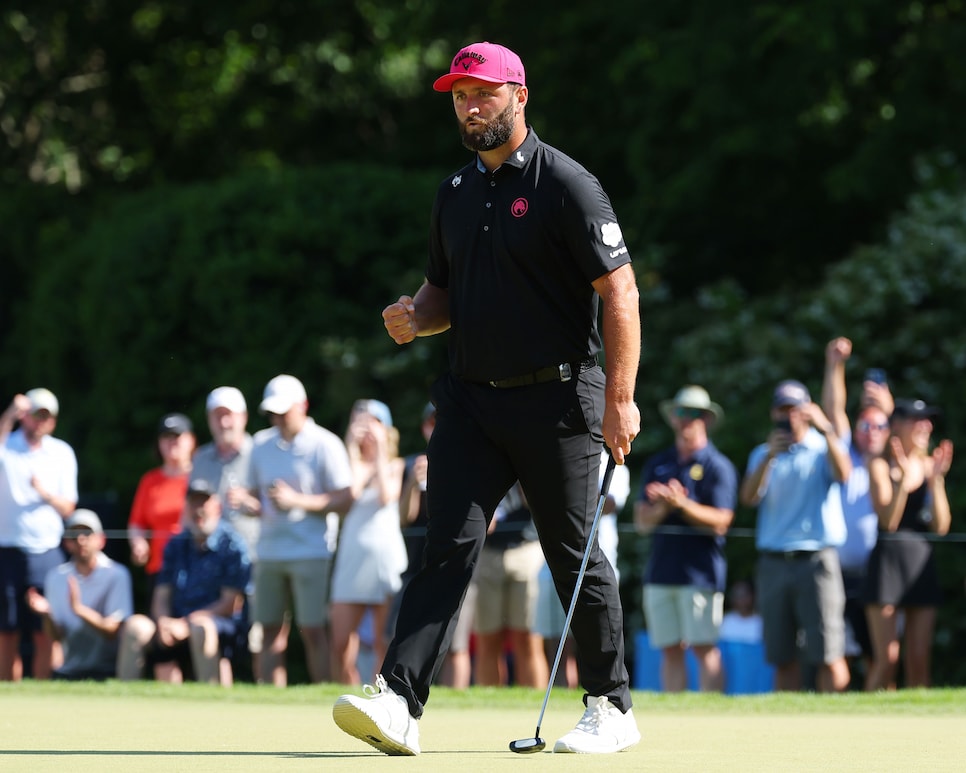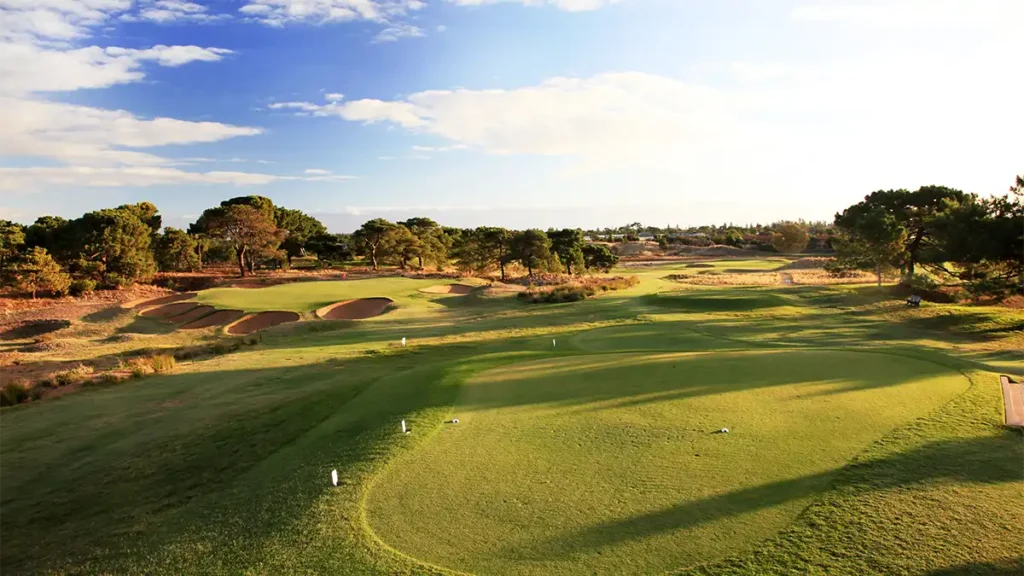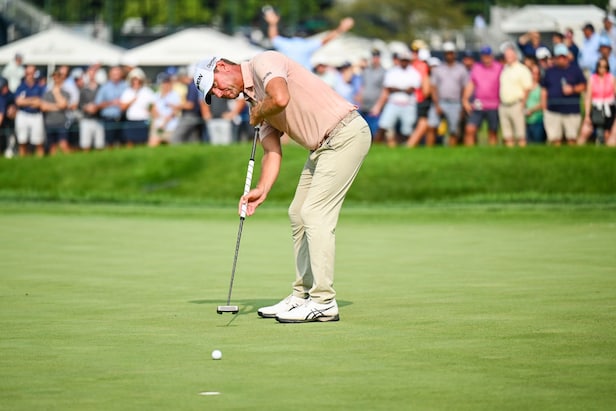What PGA Tour officials believed was one of their greatest assets in their battle against LIV Golf continues to be weaponised against them.
Unless a secret deal was struck by President Trump in Saudi Arabia last week, professional golf barrels towards its fourth summer as a divided sport. Since the collapse of White House-brokered negotiations in February, the PGA Tour’s insistence on dictating terms reveals its confidence in its position. LIV Golf continues to struggle to capture American audiences, and aside from one notable Spanish champion, no major stars have defected since 2022.
PGA Tour officials figure LIV has already fulfilled its fundamental purpose as Saudi Arabia’s sportswashing and soft-power exercise, delivering the kingdom unprecedented direct access to Washington, DC. With this channel established, what incentive exists for PIF – currently operating under cost-cutting mandates – to continue haemorrhaging capital? Adding to the tour’s position is a rediscovered swagger. American viewership is climbing, and its premier players are dominating signature events, with Scottie Scheffler and Rory McIlroy leading the way. The tour’s reluctance to compromise seems logical – challenging the Saudi Public Investment Fund to continue pouring billions into what its critics amount to an extravagant exhibition series.
MORE: Major golf has become professional tennis
Yet this strategy could prove disastrous, as the recent PGA Championship demonstrated. The final battle at Quail Hollow featured just three contenders: Scheffler versus LIV Golf stars Bryson DeChambeau and Jon Rahm. This wasn’t an anomaly. DeChambeau has contended in five of the past six majors, highlighted by his US Open victory at Pinehurst that won both the trophy and public adoration. Brooks Koepka, despite his current major drought, claimed victory at Oak Hill merely two years ago after a runner-up finish at Augusta. While Joaquin Niemann isn’t truly a top-five player globally (despite Phil Mickelson’s claims and LIV supporters’ insistence), he’s undeniably elite, and discounting him in future majors would be misguided. Augusta National rewards experience, suggesting Rahm, Koepka, DeChambeau, and Patrick Reed will remain factors for years to come.
It can’t be overstated how much a pain in the behind this is for the PGA Tour. Had LIV golfers consistently faltered at majors, dismissing the Saudi circuit would be effortless. The tour could confidently wave off PIF’s blank cheques, secure in the knowledge that defectors were entering competitive oblivion. It was a pervasive narrative – bordering on wishful thinking – suggesting that LIV defectors would inevitably deteriorate when competing against a roster of journeymen, aging veterans and unproven talents. This sentiment persists; respected analyst Paul McGinley attributed Rahm’s major championship struggles to precisely this competitive deterioration. Yet McGinley’s assessment, despite his renowned golf intellect, collapses under the weight of evidence.
RELATED: Saudi fund that backs LIV Golf will be title sponsor for Ladies European Tour series
More ominously, while not facing catastrophe, storm clouds gather on the horizon. The PGA Tour has wielded major championship access as its ultimate player retention weapon. This advantage has eroded dramatically as three major championships have established explicit (or de facto) exemption categories for LIV competitors this year, while LIV’s aggressive new CEO actively revitalises their campaign for coveted recognition from the Official World Golf Ranking – potentially expanding their major championship pipeline.
Though OWGR approval remains less imminent than optimistic reports suggest, meaningful dialogue has resumed. Moreover, the once-unified golf establishment has fractured under pressures from equipment rollback controversies, federal antitrust investigations and the tour shocking framework agreement with PIF. Four years of turmoil have revealed that golf’s power brokers ultimately prioritise self-interest; for major championships, this means assembling the best fields regardless of tour politics.

Kevin C. Cox
Should this pipeline fully materialise, the PGA Tour faces potential long-term complications. The competitive deterioration argument lies in ruins, while moral superiority claims ring hollow – how can the tour denounce Saudi funding while simultaneously negotiating for those same billions? Though the tour’s position retains validity, focusing on reclaiming just three transcendent talents (DeChambeau, Rahm and Koepka), the prevailing theory that recovering even one could mortally wound LIV represents dangerous wishful thinking beyond their control.
Despite the PGA Tour’s recent ratings bumps, four tournaments annually eclipse all others in significance. Some argue they constitute golf’s only truly consequential events, and the tour exercises zero authority over them. As long as LIV Golf has a habitual presence on major leaderboards, they will matter, too.
*Joel Beall is a staff writer for Golf Digest in America. This article was originally published on golfdigest.com











